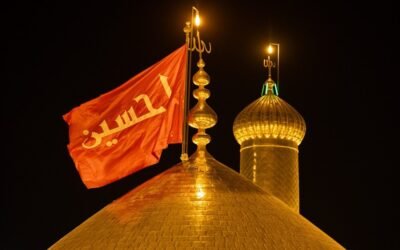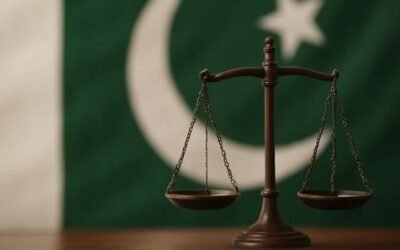In recent months, the Middle East has witnessed a sharp escalation in cross-border strikes, air raids, and proxy confrontations that have stoked fears of a wider regional conflagration. From Israel’s airstrikes in Yemen and Qatar to its interventions in Syria and beyond, each operation signals not just tactical moves but shifting strategic alignments. At the same time, Iran’s network of allied militias and non-state actors in Iraq, Yemen, and Syria have intensified their involvement. In this volatile environment, Pakistan’s repeated declarations of willingness to defend Saudi Arabia’s holy mosques—the Grand Mosque in Makkah and the Prophet’s Mosque in Madinah—have drawn renewed attention. This article contextualizes those recent regional developments, traces historical precedents for Pakistan’s commitment, and examines both the implications and the questions that remain.
🚨 Pakistan reaffirms commitment to defend the Two Holy Mosques in Makkah & Madinah with Saudi Arabia. pic.twitter.com/jFAZNY7Ifa
— Mansoor Ahmed Qureshi (@MansurQr) September 12, 2025
Context: A Region on Edge
Some of the most significant recent incidents include:
- Yemen: Israeli airstrikes have struck Houthi‐held areas, including Sanaa and al-Jawf, resulting in significant civilian casualties. One such attack on September 10, 2025, killed dozens and wounded many more, targeting what were claimed to be Houthi military infrastructure. (Reuters)
- Qatar: A rare Israeli strike on Doha targeted Hamas political leaders. This prompted strong diplomatic protests, including condemnation from the UN Security Council and concern over Qatar’s sovereignty.
- Syria: Through 2023-24, Israel has carried out multiple strikes in Syria targeting Iranian-backed militias, weapons depots, command centers, and other sites. These operations are often presented as countermeasures to threats posed by those militias, or to preempt their ability to assist groups like Hamas.
- Iran, Proxy Networks: Iran’s alignment with non-state actors in Iraq, Syria, and Yemen has deepened. These groups have sometimes been targets of Israeli, U.S., or allied strikes. Meanwhile, Iran has occasionally responded with missile or drone attacks on bases or infrastructure in Iraq or Syria.
Historical Precedents: Pakistan’s Longstanding Commitment
Pakistan has a documented record of pledging protection to Saudi Arabia’s holy mosques and defending its sovereignty. Below is a timeline of key statements that illustrate this:
| Year |
Key Statement |
Summary of Commitment |
| 2015 | Prime Minister Nawaz Sharif speaking after parliamentary resolution on Yemen crisis | He affirmed the sanctity of the Two Holy Mosques and Pakistan’s support for Saudi sovereignty and territorial integrity. The resolution warned that any violation of Saudi territorial sovereignty or threat to the mosques would evoke a strong response from Pakistan. (Geo News) |
| 2016 | Army Chief Gen. Qamar Javed Bajwa meets with Saudi leadership | He reiterated Pakistan’s commitment to the security and protection of the Holy Mosques and to defend Saudi territorial integrity. (Dawn) |
| 2017 | Gen. Bajwa in talks with the Saudi envoy | The conversation was reported as stating that the defence of Saudi Arabia is “at par with its own” for Pakistan; i.e., any threat to the holy mosques or Saudi territory is seen as a threat to Pakistan itself. (Dawn) |
| 2021 | Again, Gen. Bajwa during visits and meetings | He publicly reaffirmed Pakistan’s resolve to safeguard Saudi Arabia’s sovereignty and territorial integrity, including defence of the holy mosques. (Express Tribune) |
…COAS said that Pakistan is resolute in its commitment to safeguard the sovereignty and territorial integrity of KSA and defence of the two Holy Mosques. The Crown Prince acknowledged Pakistan’s role towards regional peace and stability. (3/4)
— DG ISPR (@OfficialDGISPR) May 7, 2021
…During the meetings, matters of mutual interest, regional security situation including recent developments in Afghan Peace Process, bilateral defence, security, collaboration for regional peace and connectivity were discussed. (2/4) pic.twitter.com/vZTwHIhdOz
— DG ISPR (@OfficialDGISPR) May 7, 2021
…The Crown Prince also said that the relations between KSA & Pakistan are based on bonds of brotherhood & mutual trust and both nations will continue to play their part for peace, stability & betterment of Muslim Ummah. (4/4)
— DG ISPR (@OfficialDGISPR) May 7, 2021
Implications, and Outlook
Given the current regional tensions, Pakistan’s reaffirmations serve multiple functions:
- Symbolic Solidarity: In Muslim majority countries, the holy mosques are potent symbols.
- Strategic Leverage: Reaffirming defence ties can enhance Pakistan’s diplomatic weight in the Gulf.
- Deterrent Signalling: Declarations may act as deterrence against threats to Saudi territory and holy sites.
Conclusion
With the Middle East currently roiled by missile strikes, air raids, proxy wars, and heightened diplomatic tensions, declarations of protection around religious symbols take on renewed importance. Pakistan’s historical pledges to defend the Two Holy Mosques are not new—but they are being recalled and re-emphasized in a region where threats appear more immediate than ever. Whether the latest claims reflect a new, binding treaty or are largely reaffirmations of old understandings, the effect is the same: Pakistan is publicly positioning itself once again as a guardian of religious heritage in the face of regional insecurity.
You May Like To Read:




























